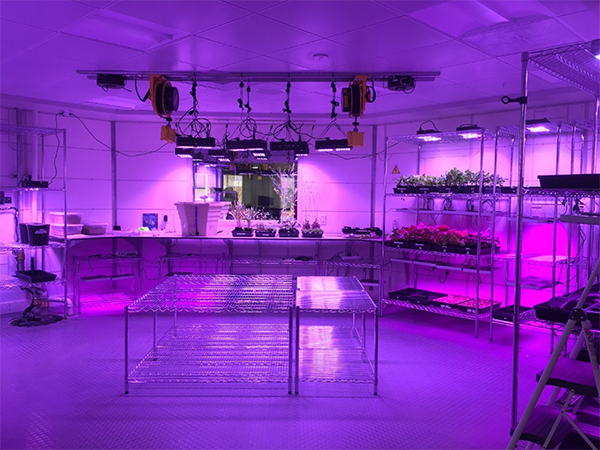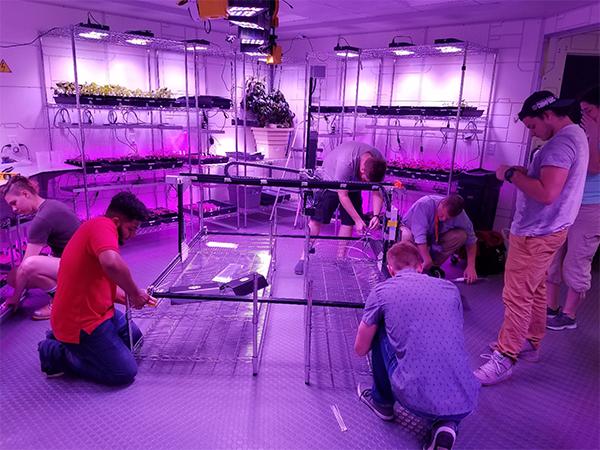Mars Base 1 newest crewmember is FarmBot, straight from NASA! This robot farmer plants seeds, adds nutrients, waters the plants, and makes sure crops are healthy. Students from the Florida Institute of Technology (FIT) will be conducting remote experiments to test the effectiveness of this robot as it grows plants in the Mars Base 1 Botany Lab.
FarmBot has spent the past year working with the scientists on NASA’s Food Production team in the Space Station Processing Facility (SSPF) at Kennedy Space Center. Early in 2018, NASA announced plans to relocate FarmBot to the greenhouse in the Botany Lab at Mars Base 1 (MB1) to participate in the FIT research project. When we got the news, we immediately began reorganizing the greenhouse to give FarmBot ample room to grow. In addition to planting and watering, FarmBot will use an array of sensors to monitor the soil quality and plant health.
Although our guests won’t be working directly with FarmBot, they will get to watch it in action, and their experiments will be growing alongside the ones that FIT is conducting. Guests will grow some of the same crops to compare their growth with the ones FarmBot is overseeing.

The students at FIT will operate FarmBot remotely via connection with a Raspberry Pi computer and monitor its progress using several web cameras. In their lab on the Melbourne campus, they will duplicate MB1 greenhouse conditions – lighting, temperature, etc. – as closely as possible. Before beginning this experiment, the team is working to install and program FarmBot, which will grow a number of crops throughout the upcoming months.
“For this project, what we’re growing is not as important as how many hours are spent on tasks,” said FIT project manager Dave Masaitis.
He will compare FarmBot’s efficiency with that of the humans growing plants in the FIT facility. The purpose of this experiment is to see how much crew time can be freed up for non-routine tasks.
“We’re using FarmBot in ways it wasn’t designed to work,” Masaitis said. “So it will be interesting to see how it performs in this situation.”

Interested in Mars Base 1 for your group or your next field trip? Learn more and how to book here.




